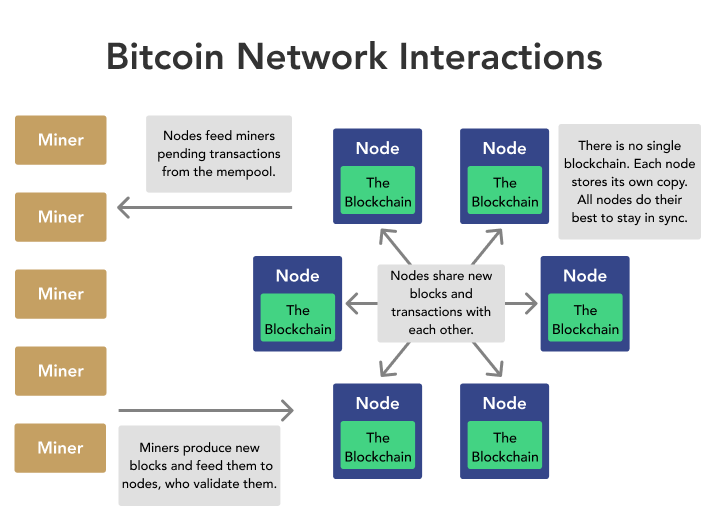There are approximately 18,000 Bitcoin nodes active on the network at present. This number fluctuates regularly.
Bitcoin nodes, essential components of the network, help validate and relay transactions, contributing to the decentralized nature of the cryptocurrency. As more nodes join, the network becomes more robust and resilient, enhancing security and efficiency. Node operators play a crucial role in the Bitcoin ecosystem by ensuring the integrity and decentralization of the network.
By running a node, individuals contribute to the overall health and sustainability of Bitcoin, aligning with the core principles of decentralization and consensus that underpin the cryptocurrency’s functionality and value. The number of nodes reflects the growing interest and adoption of Bitcoin worldwide, highlighting its prominence in the digital currency landscape.
What Is a Bitcoin Node
Nodes are pillars of the Bitcoin network. These nodes continuously monitor the blockchain and its complete transaction history to prevent access to non-legitimate transactions that attempt to spend their Bitcoin twice fraudulently, also known as the double-spending issue.
Any computer downloading the Bitcoin software that will join the Bitcoin network is called a node. The most popular client and software implementation of full nodes is Bitcoin Core; its latest release can be found on the GitHub page.
A node holds the complete history and chronology of the Bitcoin blockchain, which is like a ledger, and contributes to the security of the Bitcoin network through the consensus mechanism because nodes will reject any transaction that breaks consensus rules.

What are Nodes In a Blockchain
The backbone of blockchain networks is based on the Bitcoin structure, which was the first to lay the foundation for the technology. Therefore, understanding Bitcoin nodes’ principles will help understand how most blockchains work. They only have different protocols with different rules, but the functional aspect remains the same.
The main function of blockchain nodes is to ensure network transactions and blocks are legitimate and follow the protocol rules. They must guarantee that the data and the network are trustworthy.
Typical nodes that sustain the infrastructure of a blockchain are master nodes and miner nodes. They receive bigger block rewards because they employ higher resources to empower the network.
However, master nodes don’t add new transactions or blocks to the blockchain like regular or miner nodes. A more extensive explanation of these types of nodes can be found later in the article.
Why Should I Run a Bitcoin Node
Since Bitcoin currently has a sufficient number of Bitcoin nodes, running your own Bitcoin node is mostly self-serving rather than a contribution to the greater good. Running your own Bitcoin node allows you to preserve your privacy and bolster your security. It also allows you to prove that no one is manipulating the Bitcoin network or changing its rules.
Frequently Asked Questions For How Many Bitcoin Nodes Are There
How Many Bitcoin Nodes Are Active?
There are currently around 10,000 active Bitcoin nodes spread across the globe, enhancing the network’s security and reliability.
What Is The Role Of Bitcoin Nodes In The Network?
Bitcoin nodes validate transactions, propagate them throughout the network, and maintain the blockchain’s integrity, ensuring the network’s smooth operation.
How Can I Run A Bitcoin Node?
Running a Bitcoin node requires downloading the full blockchain and running the Bitcoin Core software on a computer with sufficient storage and processing power.
Conclusion
To summarize, the number of Bitcoin nodes plays a crucial role in the decentralized nature of the cryptocurrency network. By having a network of nodes spread across the globe, Bitcoin ensures security, reliability, and transparency. As the popularity of Bitcoin grows, it’s essential to have a robust network of nodes to support the increasing demand.
So, while the exact number of Bitcoin nodes may vary, their importance cannot be overstated in maintaining the integrity and efficiency of the Bitcoin network.

